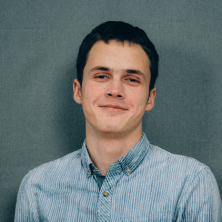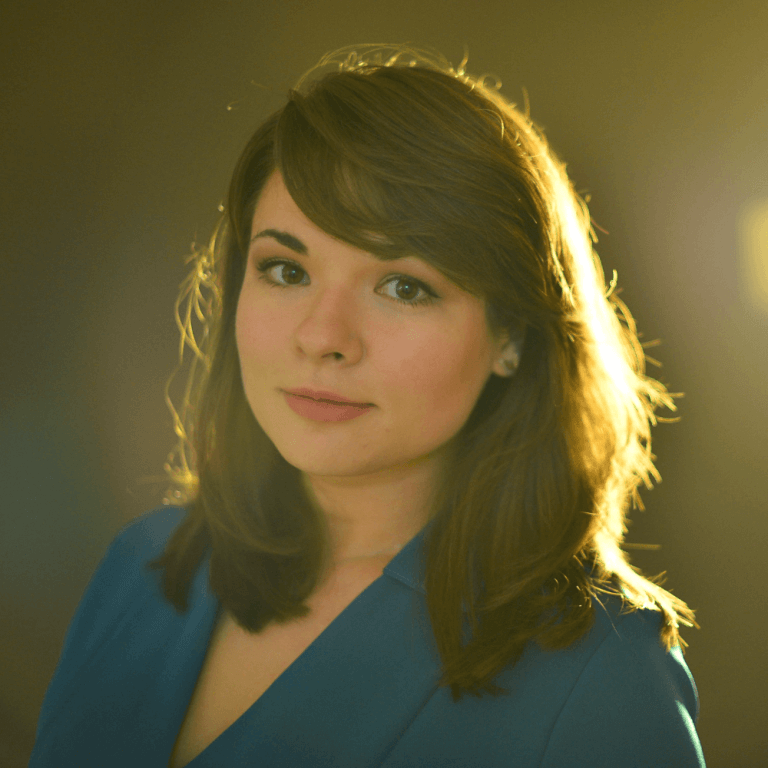Before the beginning of work of the IXth convocation of Verkhovna Rada let’s recall eight previous convocations of the Parliament. How much was Verkhovna Rada renewed? What was the portrait of the average MP? Do political dynasties exist in the history of the Ukrainian Parliament? How the activity of committees was changing?
We choose the same again
We decided to check whether the average portrait of the MP changed with each new convocation.
Fig. 1 Portrait of an Average MP in VRU (hover over the graph for details)
It turned out, that for the first 4 convocations the “average” MP was identical: over 45, with higher education, previously worked as an engineer. In the first convocation one of the most popular professions was an agronomist (agircuturist), in the second – a teacher. In the 3rd and 4th convocations, these professions were replaced by economists and lawyers. It is interesting that, compared to other convocations, the Verkhovna Rada of the 8th convocation had the fewest deputies (MP) with higher education, among the most popular professions there was a position of a “leader” (this category included top managers, directors and chairmen of the supervisory boards of companies). Also, the 8th convocation was a little “younger” than the previous convocations.
We have to note positive trend of a gradual increase in the number of women in the Verkhovna Rada. If in the first convocation they were only 3%, in the eighth – 12%. There is 20% of women already in the Parliament of the 9th convocation
Power renewal
There will be 339 (or 80%) new MPs in the new parliament. This is the second largest renewal of Parliament in 28 years. How much renewal were in the previous convocations ?
Pic.1 “Renewal” of VRU convocations
The Verkhovna Rada of the 2nd convocation was renewed the most – by 85%. It means, that 85% of the deputies of this convocation were not in the previous one. Probably, this indicator can be explained by the collapse of the USSR and the independence of Ukraine, since the second convocation was the first after these events, and thus voters realized their desire for new faces. At the same time, the least renewal of parliament was in the 6th convocation – 36%. Perhaps, this is because the deputies of the previous convocation sat under the “glass dome” for only a year and a half, and during this time did not have time to disappoint their constituents.
Let’s have a look at the frequency of deputies presence in the Parliament. 2/3 of the MP were in the Parliament for only one convocation. An other convocation of the Verkhovna Rada could be composed of those who were elected twice – 470 people. Only a few MP stayed in the Parliament for more than 5 convocations.
Yukhym Zvyahilsky and Ivan Kirilenko are “long-time” deputies. They stayed in parliament for eight consecutive convocations. Yukhim Leonidovich was the only MP of all convocations until 2019. However, he did not run for election this year. Ivan Kyrylenko began his deputy career in 1994 on the majority electoral district, and after that he won elections every time as member of the party list. Yuliia Tymoshenko,Viktor Pynzenyk, Andriy Derkach, Oleksandr Abdullin, Serhii Soboliev, Yulii Ioffe, and Mustafa Dzhemiliev were in the parliament for 7 convocations. Of them, only Viktor Pynzenyk will not be in the Parliament of the 9th Convocation.
Fig. 2 Frequency of MP presence in convocations
Committees Transformation
In accordance with the Constitution, committees are formed in the Verkhovna Rada, which until 1997 were Standing Committees. They perform such important functions as drafting bills, finalizing them, analyzing them, and so on. The first meeting of the new parliament approves all the characteristics of the committees, including their number, titles and issues attributed to authority. We have looked at how often these characteristics have changed over the 28 years of parliamentarism.
The number of committees during all convocations has always been greater than 20. The fewest were created during the second (1994-1998), ninth (2019-2023) and third (1998-2002) convocations – 23. And the most – 30 committees – during the seventh convocation (2012-2014).
Fig.3 Number of committees in VRU
Many committees existed throughout the eight convocations. During this time, they’ve changed only the name, but the area of competence remained unchanged. These committees include:
- Committee on Rules of Procedure, Parliamentary Ethics and Administration of Verkhovna Rada’s Work
- Committee on National Security and Defence
- Committee on Foreign Affairs
- Committee on State Building, Local Governance, Regional Policy and Urban Development
- The Committee on Budget
- Сcommittee on Economic Policy
- Committee on Agrarian Policy and Land Relations
- Committee on Social Policy, Employment and Pension
- Committee on Education and Science
- Committee on Culture and Spirituality
- Committee on Family Matters, Youth Policy, Sports and Tourism
- The Committee on Human Rights, National Minorities and International Relations
- Committee on Freedom of Speech and Information Policy.
However, there were committees that existed for only one convocation. They were then merged into one committee or liquidated. Such committees were mostly in the first convocations. Thus, at the beginning of Ukrainian parliamentarism (1990-1994) there was a “Committee on Rural Revival and Social Development“. Already in the next convocation, it was merged with the Committee on Agro-Industrial Complex into the “Committee on Agro-Industrial Complex, Land Resources and Social Development of the rural area”.
The Committee on State Sovereignty, Inter-republican and Interethnic Relations existed for only one convocation (1990-1994). We could not find the competence of this committee. But he was preparing a declaration of state sovereignty of Ukraine.
All the committees that existed for the eight convocations can be viewed in the graph below
Fig.4 Transformation of the VRU committees
Were there any political dynasties in the Verkhovna Rada?
Throughout the history, there have been 69 people in the Verkhovna Rada who have been in family relationships and have been members of 35 families. Politicians were elected in VR together with siblings (brothers and sisters), wives and children. Of these, 26 were MPs at the same time, and 10 became MPs after senior relatives. Among the latter we have identified 7 political dynasties.
Let us tell about families of the Verkhovna Rada.
Relatives in VRU
Fig. 5 Number of family related MPs in Verkhovna Rada
We have checked how many family related MPs were in parliament simultaneously.
Deputies were more often in the same convocation with their siblings than with their parents. The most filled with “families” was the Verkhovna Rada of the 8th convocation: simultaneously it had representatives of 5 families. They are:
- Alexander and Viktor Shevchenko (Ukrop party),
- Victor, Paul and Ivan Balogi (United Center Party),
- Serhiy and Yulia Lvochkina (Opposition Bloc),
- Michael and Dmitry Dobkin (Opposition Bloc),
- Bogdan and Yaroslav Dubnevichi (BPP).
Among the deputies of the Verkhovna Rada of the VII and VIII convocations were spouses. In the Verkhovna Rada of the 7th convocation, they were Oksana and Igor Kaletniki (both representatives of the Communist Party of Ukraine) and Inna Bohoslovska (non-party) with civilian husband Volodymyr Melnychenko (at that time a member of the Party of Regions). And in VIII convocation – Natalia Korolevskaya with her husband Yuriy Solod.
In the II, III and IV convocations of the Verkhovna Rada, there were parents and sons at the same time. Anatoliy Franchuk and his son Igor were in the 2nd and 4th convocations (howerever they have not been elected to the parliament separately), and Vyacheslav Chornovil and his son Taras were in the VRU of the 3rd convocation.
Through all time, most of deputies-relatives of VRU were deputies from Party of Regions – 15. 9 deputies were non-party, 7 – from Nasha Ukraina and 5 deputies from BPP and BYuT.
Political Succession
Succession of the generation was more common among MPs, compare to the simultaneous presence in the Parliament. The seats of the older generation of MPs were occupied by children, sons-in-law and daughters-in-law *. There were 7 hereditary political dynasties in the Verkhovna Rada.
* We considered a dynasty to be the family in which the older generation left the post of deputy when his / her relative was elected to the Verkhovna Rada. The cadence of at least one family member should last more than 1 convocation.
Fig.6 Political succession in VRU
Ukrainian politicians entered Verkhovna Rada following their parents, who stood at the origins of Ukrainian parliamentarism. For the most part, sons of the parents deputies of 1-3 convocations continued there pass and remained in office up to 7-8 convocations The cadences of fathers and sons from political dynasties did not intersect, the only exception being Vyacheslav and Taras Chornovoli, who were both deputies of the Verkhovna Rada of the 3rd convocation. Subsequently, Taras Chornovil continued his parliamentary career in Verkhovna Rada in IV, V and VI convocations.
Conclusions
- For 8 convocations, the average portrait of a deputy remains almost unchanged: a man over 44, with higher (often technical) education. For the first 4 years, the most popular previous occupation of deputies was engineering. In the 8th convocation, on average, deputies became younger, fewer of them had higher education (and, respectively, more have had incomplete higher or secondary education), and the previous place of work of parliamentarians was often stated as people’s deputy, leader or temporarily unemployed.
- The Verkhovna Rada of the 2nd convocation was the most renewed, by 85%, and the Rada of the 6th convocation – the least, by 36% only. In our opinion, the first can be explained by the fact that after independence people wanted new faces in the parliament. In the second case, the probable explanation is the short duration of the previous convocation (the parliament elected in 2006 was dissolved by Viktor Yushchenko in 2007).
- There are always more than 20 committees in each convocation of VRU. Of these, there are 13 committees that may change their name but retain their functions: national security, foreign affairs, state building, budget, social, economic, agrarian policies, youth, culture, science, national minorities, free speech and a regulatory committee.
- Through 8 convocations of the Verkhovna Rada 68 deputies were relatives. Of these, 7 family members followed the older generations, forming a political succession.
Attention
The authors do not work for, consult to, own shares in or receive funding from any company or organization that would benefit from this article, and have no relevant affiliations




